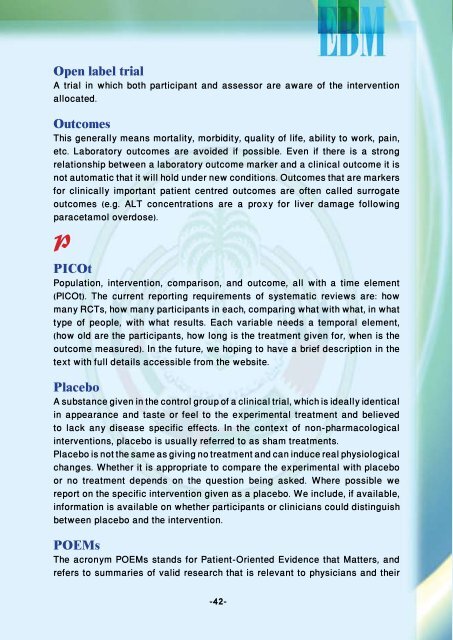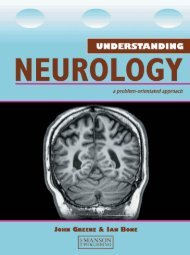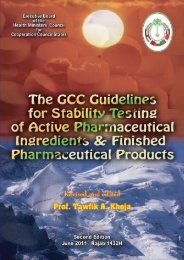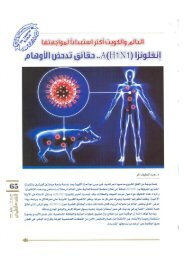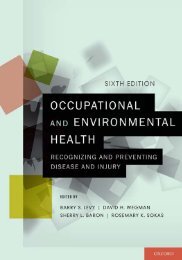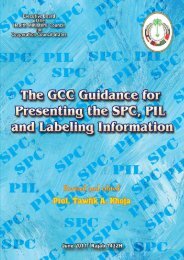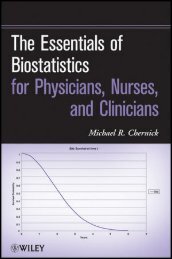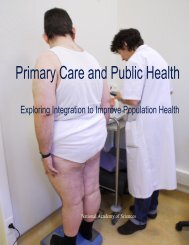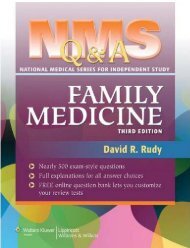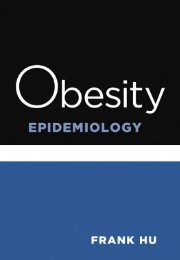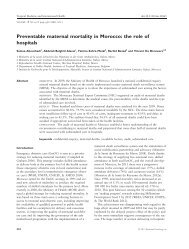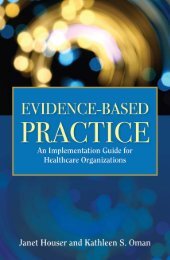Evidence-Based Medicine
Evidence-Based Medicine
Evidence-Based Medicine
You also want an ePaper? Increase the reach of your titles
YUMPU automatically turns print PDFs into web optimized ePapers that Google loves.
Open label trial<br />
A trial in which both participant and assessor are aware of the intervention<br />
allocated.<br />
Outcomes<br />
This generally means mortality, morbidity, quality of life, ability to work, pain,<br />
etc. Laboratory outcomes are avoided if possible. Even if there is a strong<br />
relationship between a laboratory outcome marker and a clinical outcome it is<br />
not automatic that it will hold under new conditions. Outcomes that are markers<br />
for clinically important patient centred outcomes are often called surrogate<br />
outcomes (e.g. ALT concentrations are a proxy for liver damage following<br />
paracetamol overdose).<br />
P<br />
PICOt<br />
Population, intervention, comparison, and outcome, all with a time element<br />
(PICOt). The current reporting requirements of systematic reviews are: how<br />
many RCTs, how many participants in each, comparing what with what, in what<br />
type of people, with what results. Each variable needs a temporal element,<br />
(how old are the participants, how long is the treatment given for, when is the<br />
outcome measured). In the future, we hoping to have a brief description in the<br />
text with full details accessible from the website.<br />
Placebo<br />
A substance given in the control group of a clinical trial, which is ideally identical<br />
in appearance and taste or feel to the experimental treatment and believed<br />
to lack any disease specific effects. In the context of non-pharmacological<br />
interventions, placebo is usually referred to as sham treatments.<br />
Placebo is not the same as giving no treatment and can induce real physiological<br />
changes. Whether it is appropriate to compare the experimental with placebo<br />
or no treatment depends on the question being asked. Where possible we<br />
report on the specific intervention given as a placebo. We include, if available,<br />
information is available on whether participants or clinicians could distinguish<br />
between placebo and the intervention.<br />
POEMs<br />
The acronym POEMs stands for Patient-Oriented <strong>Evidence</strong> that Matters, and<br />
refers to summaries of valid research that is relevant to physicians and their<br />
-42-


